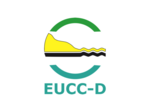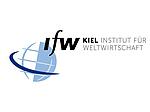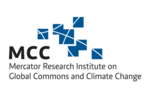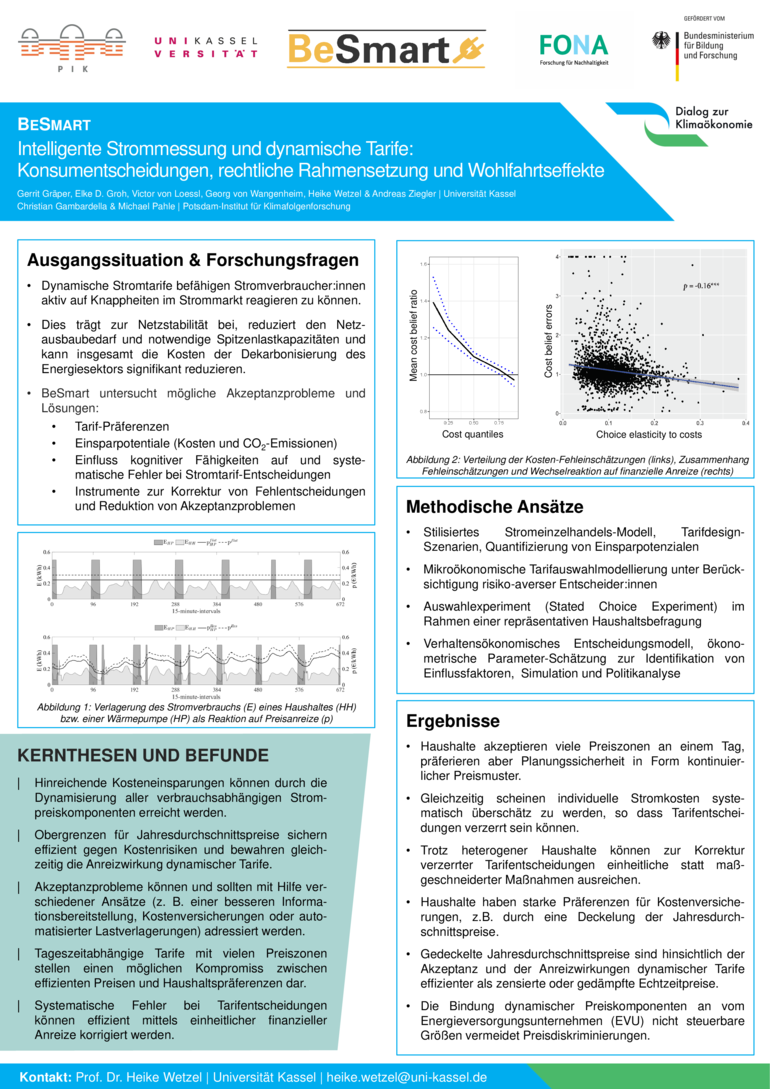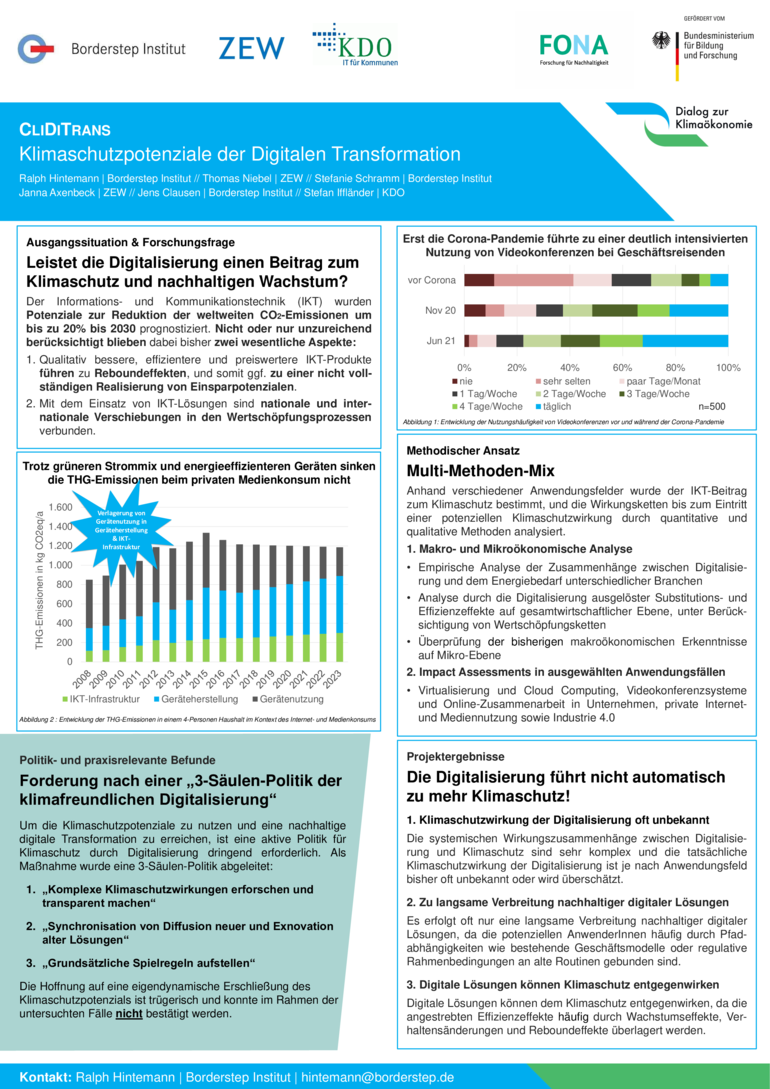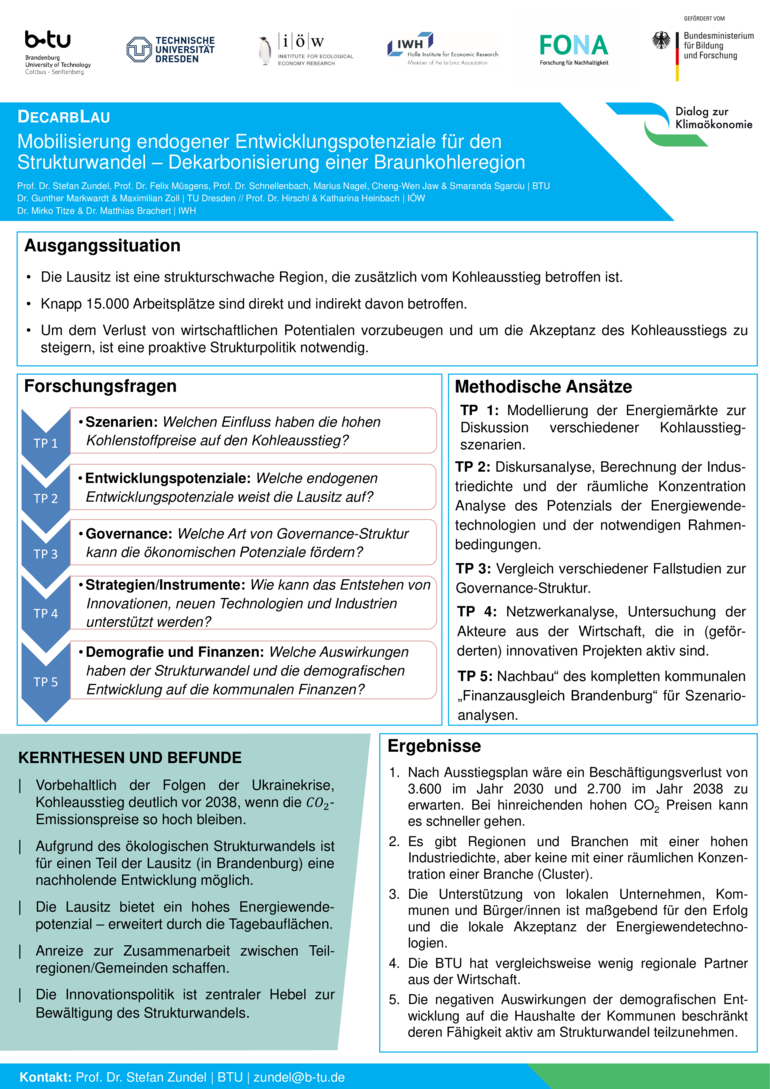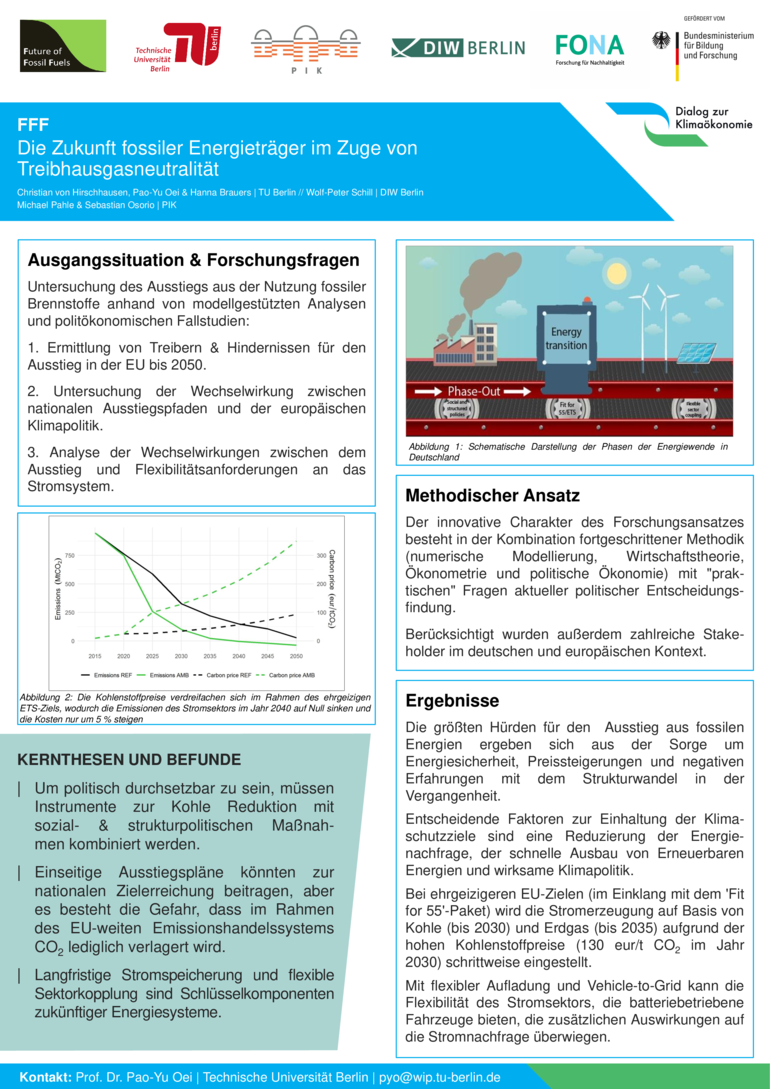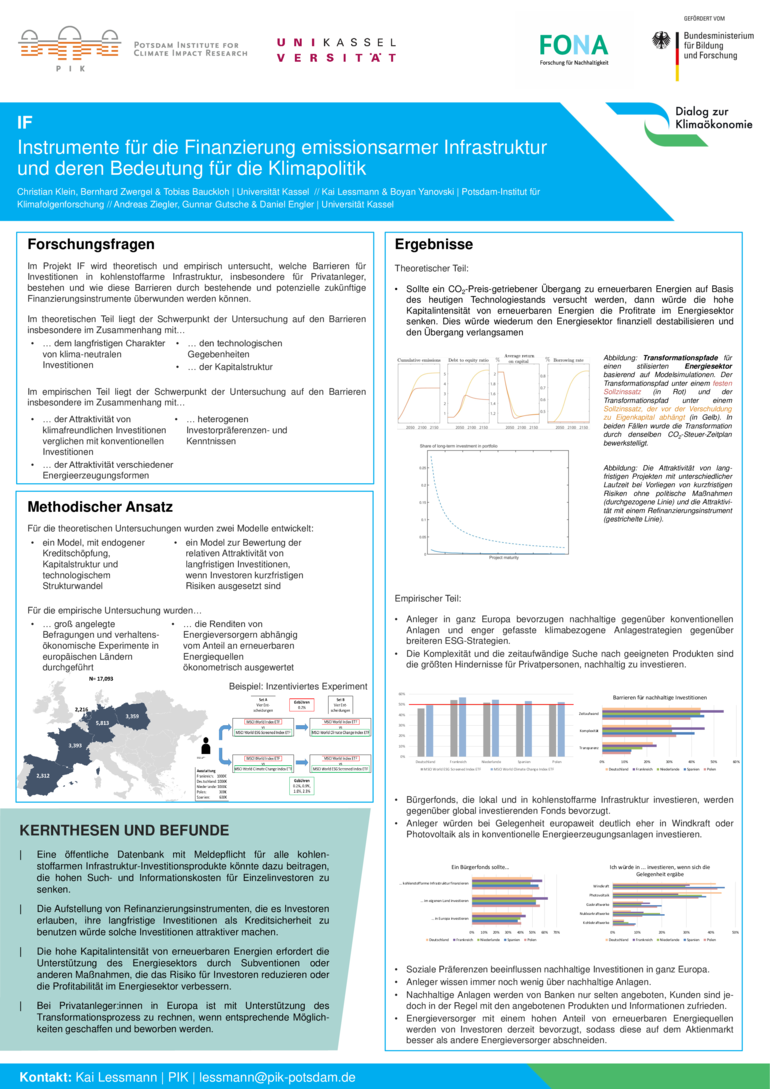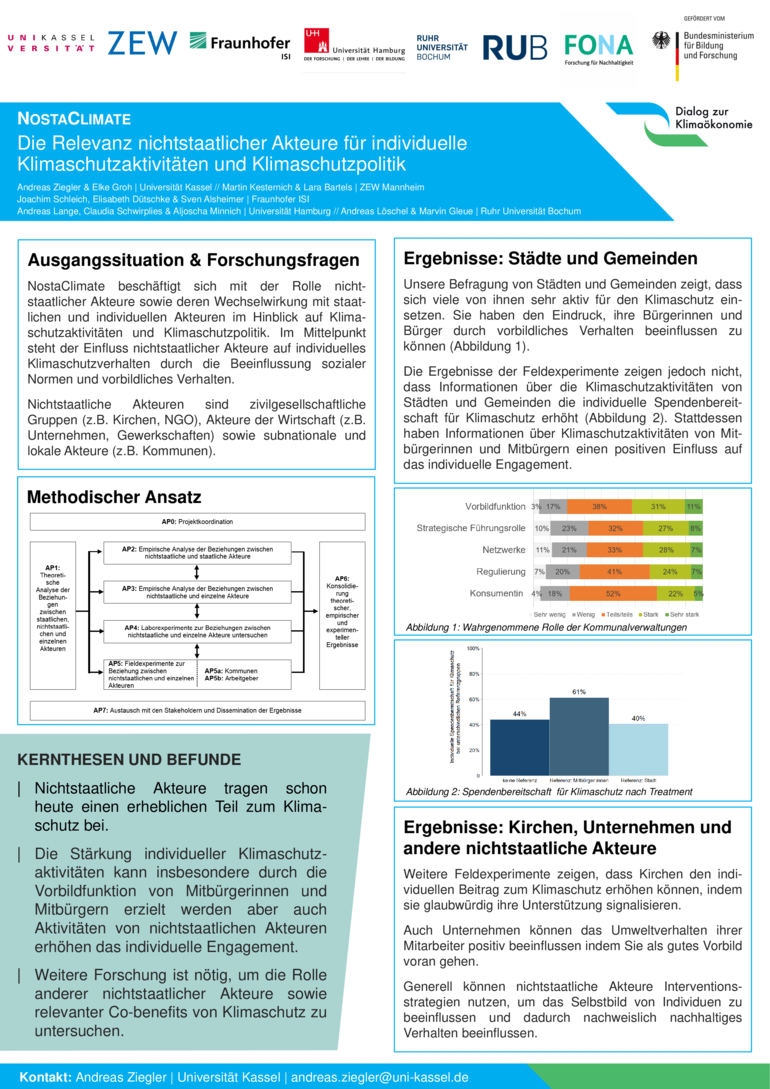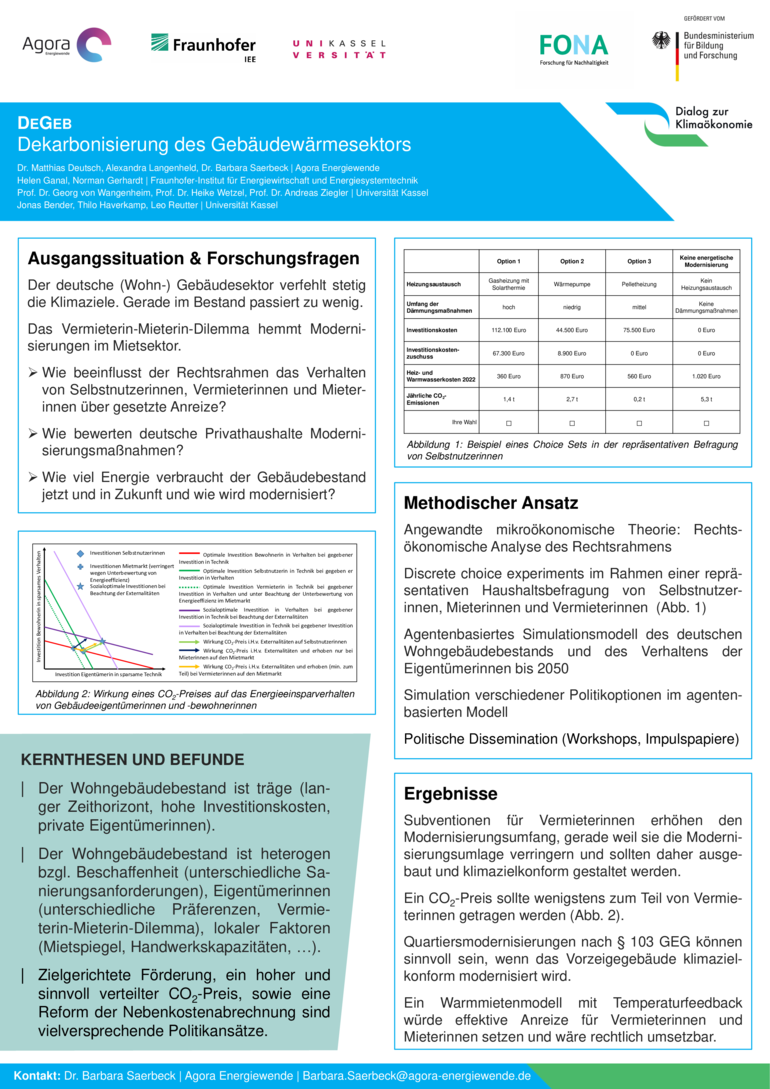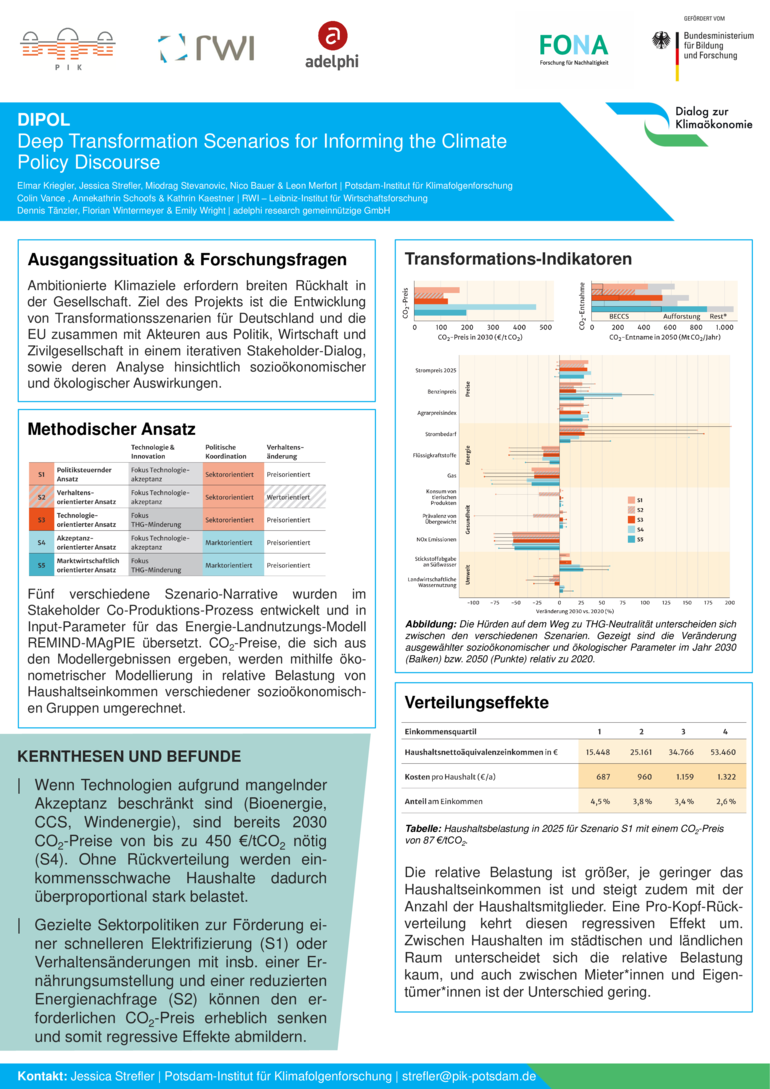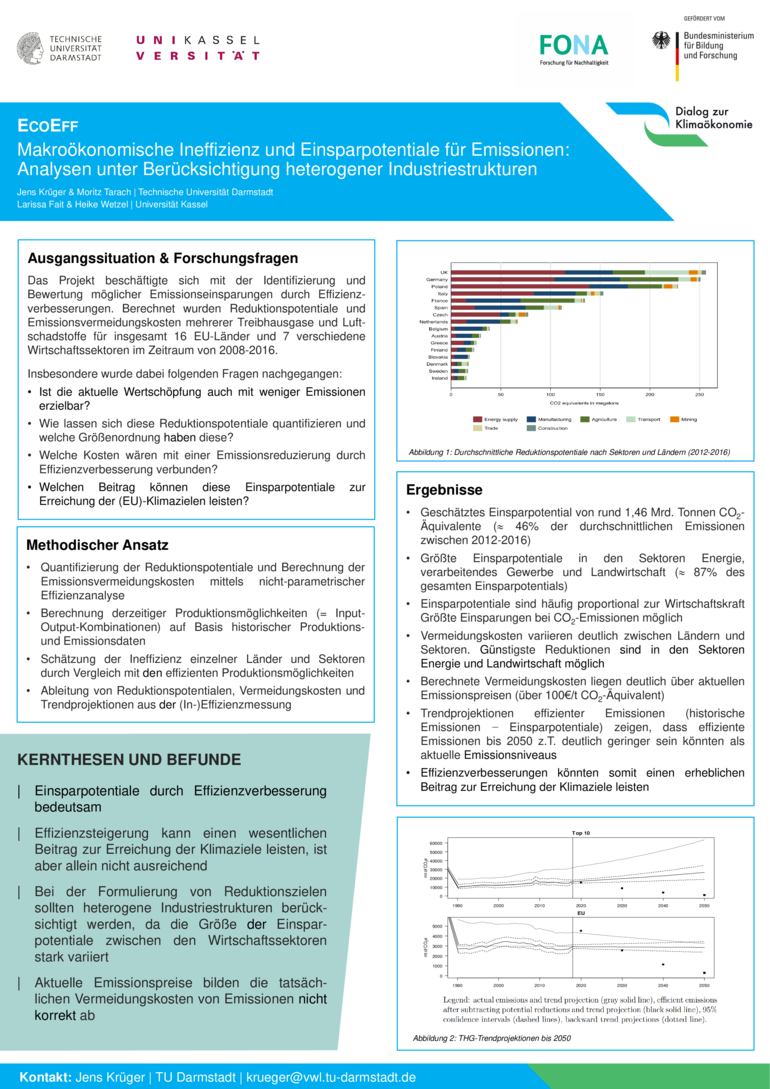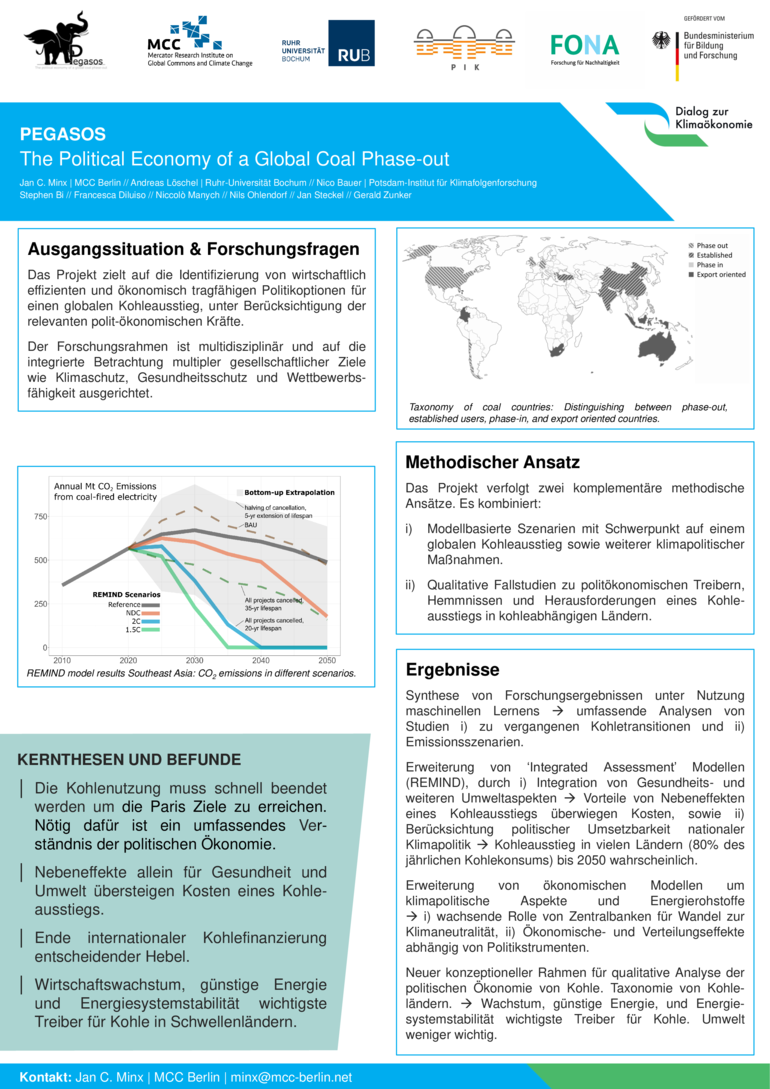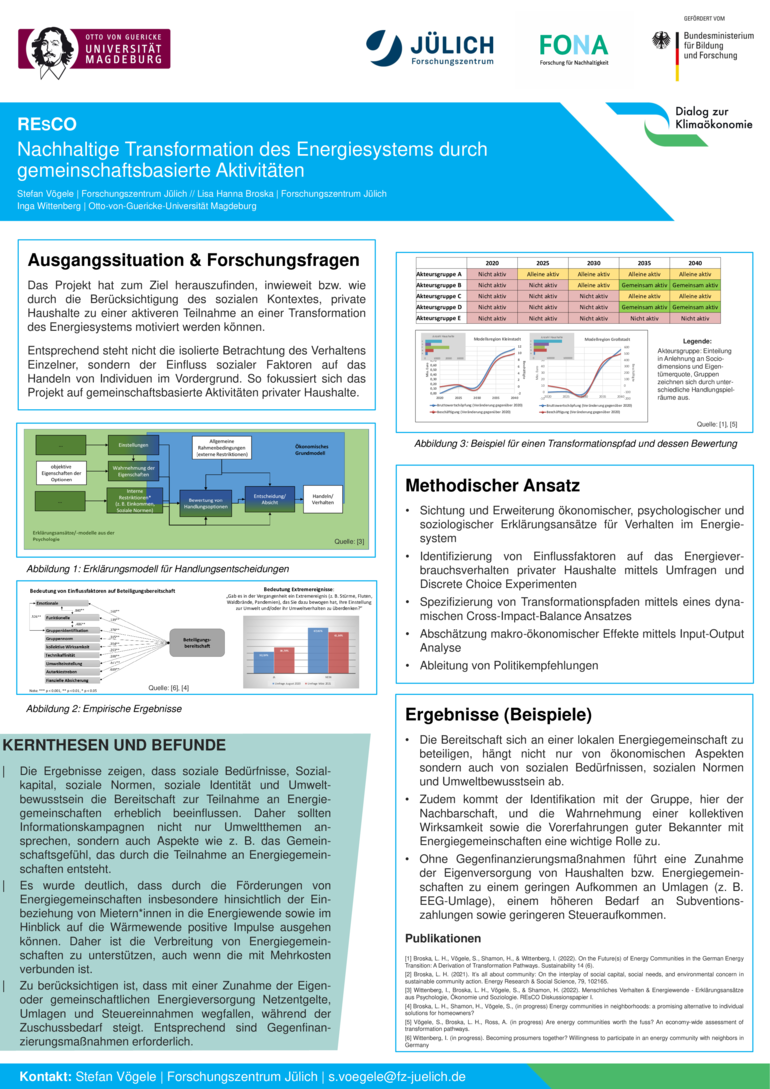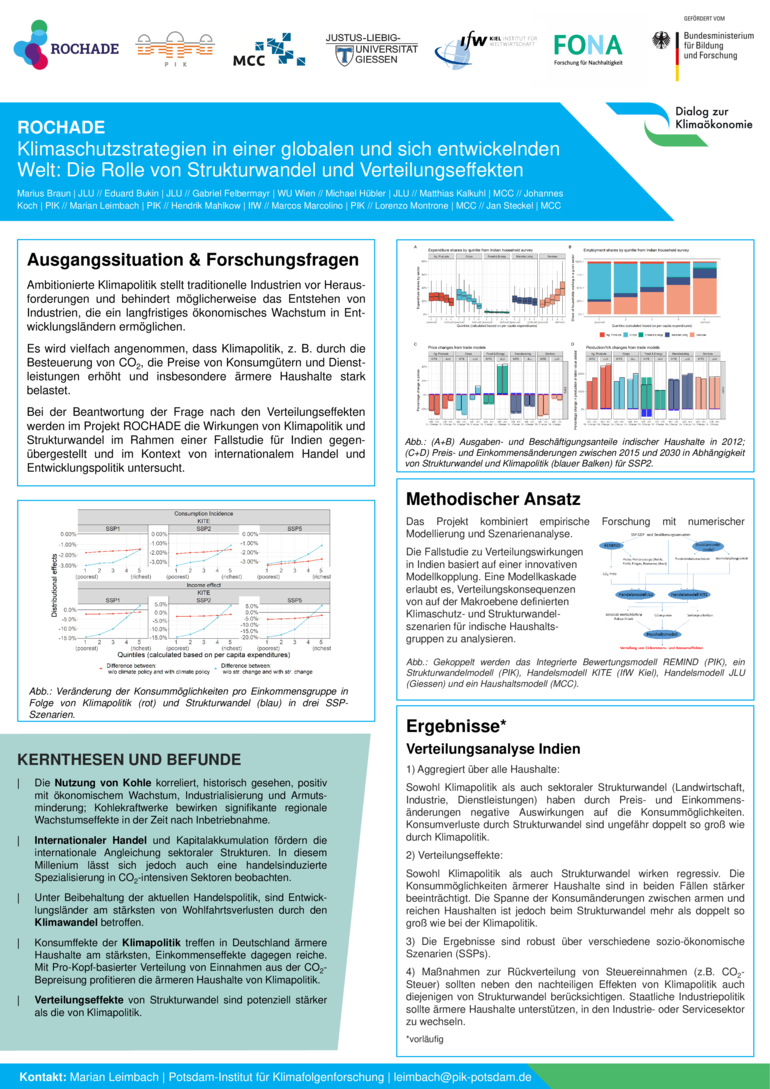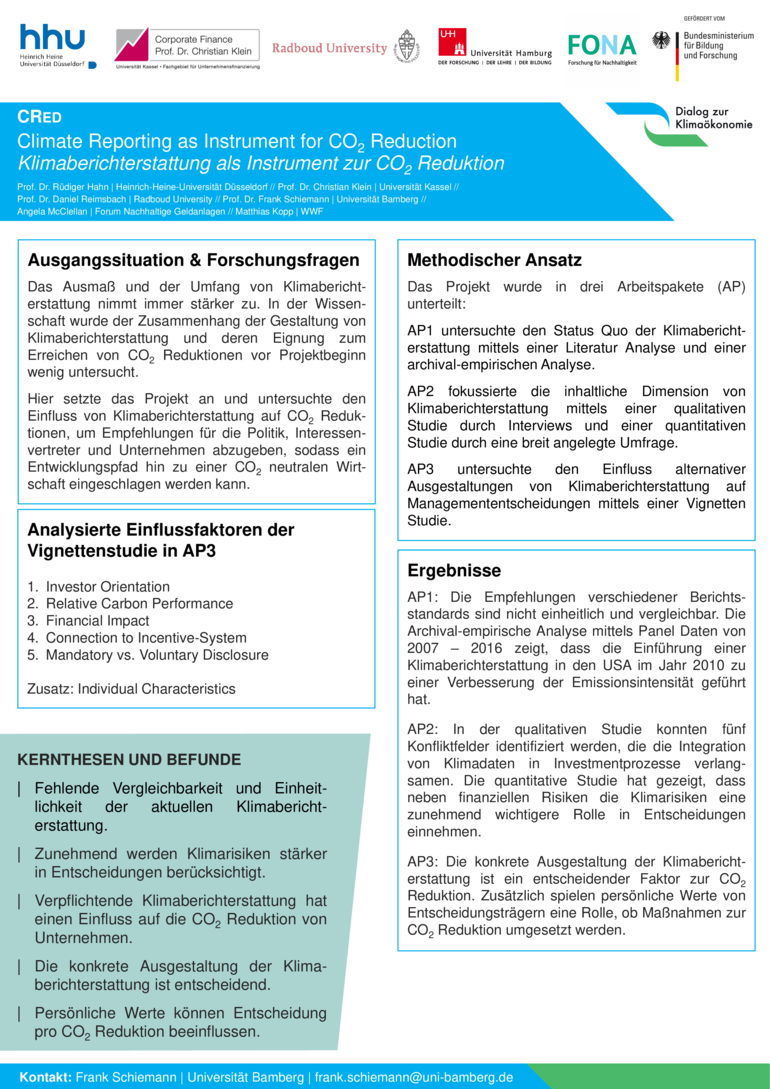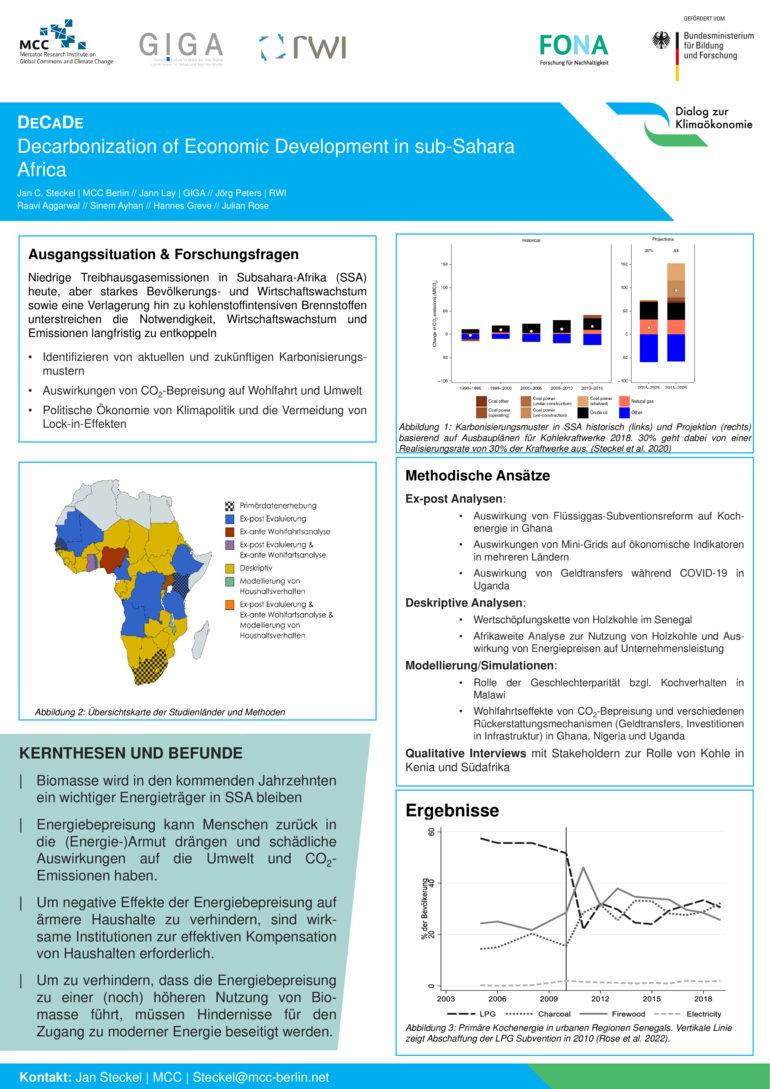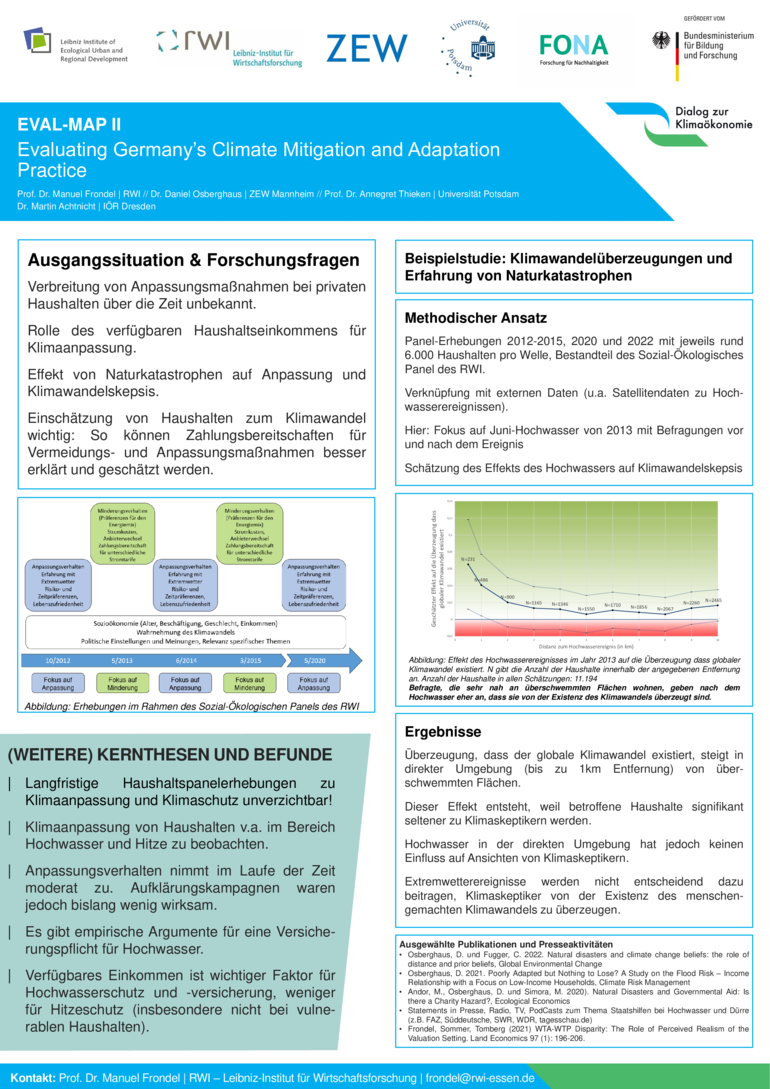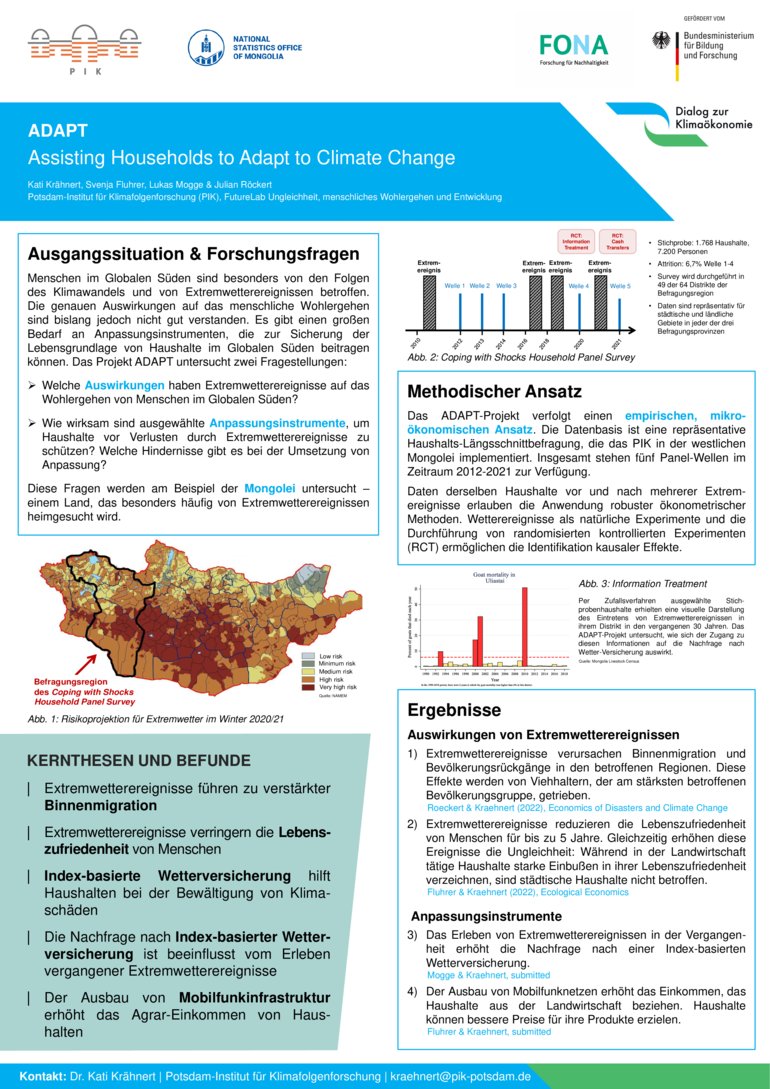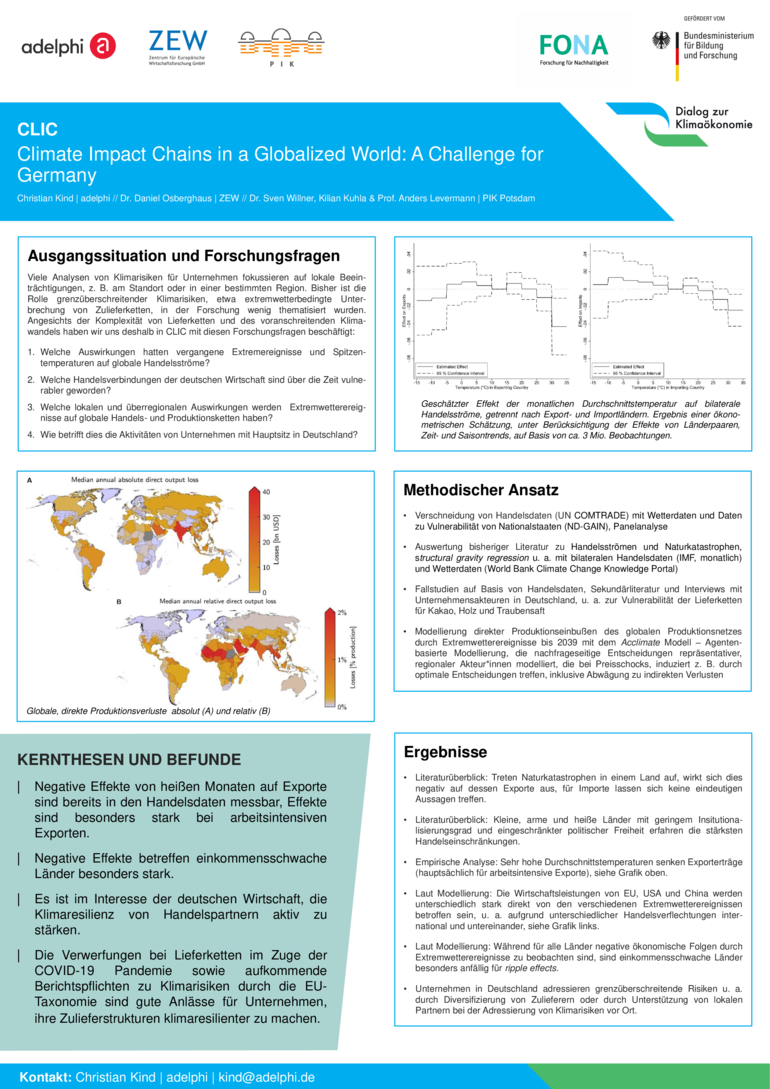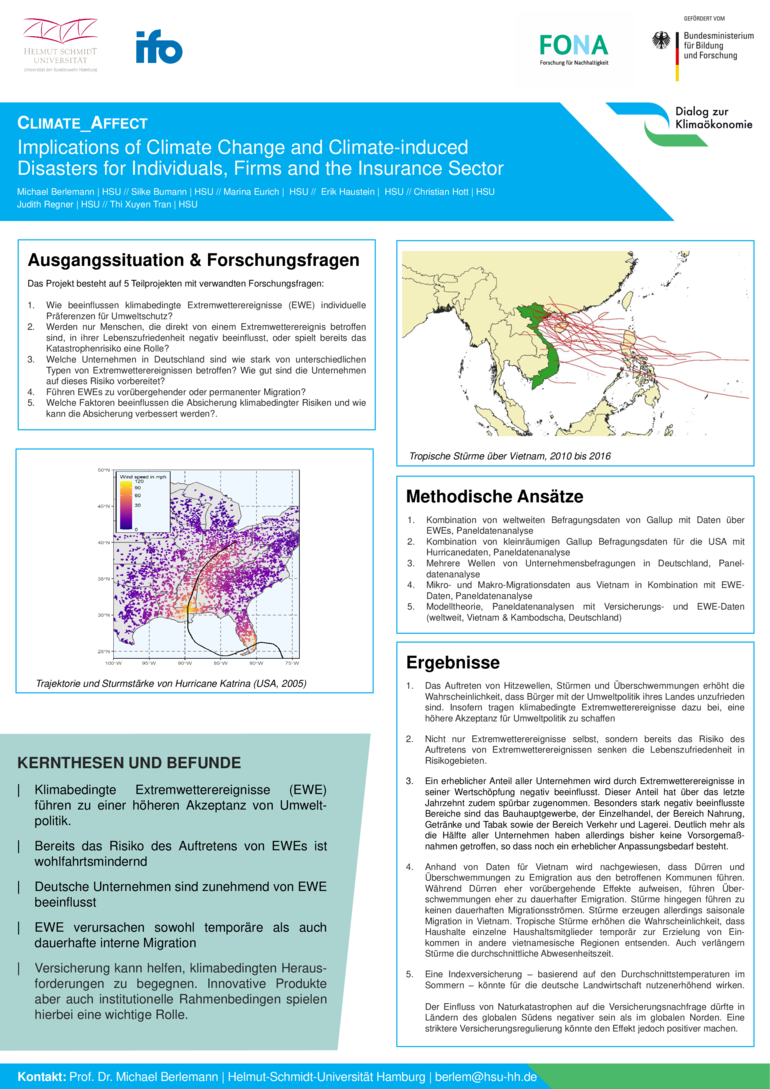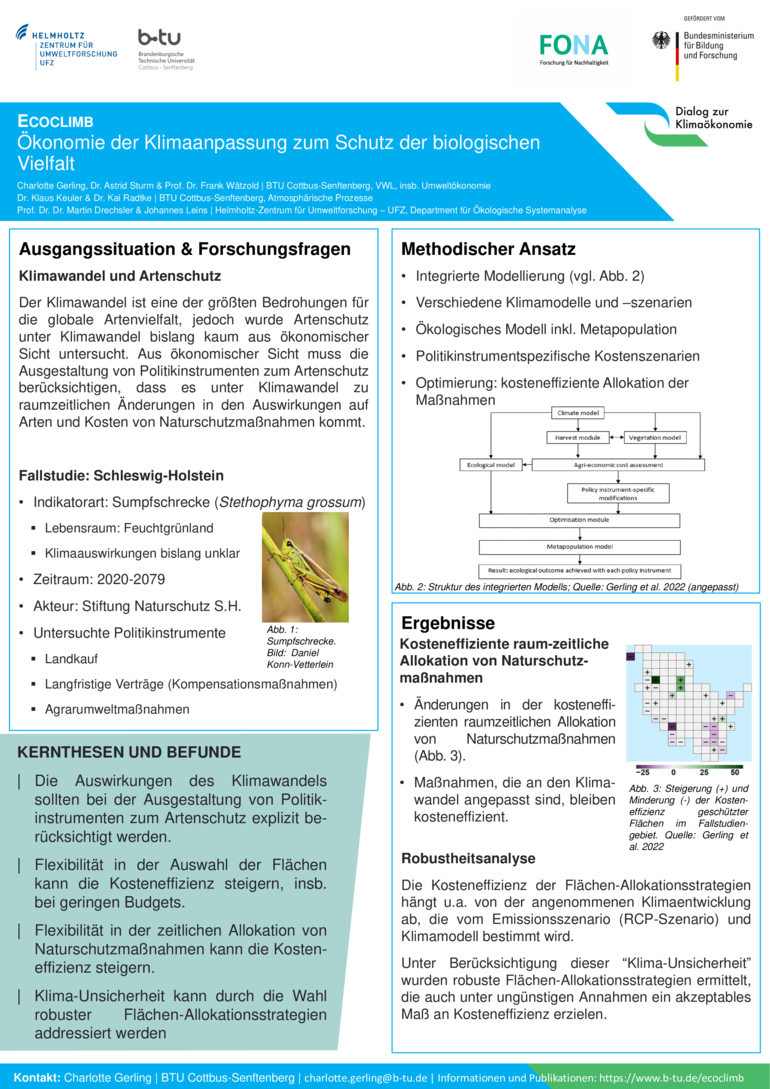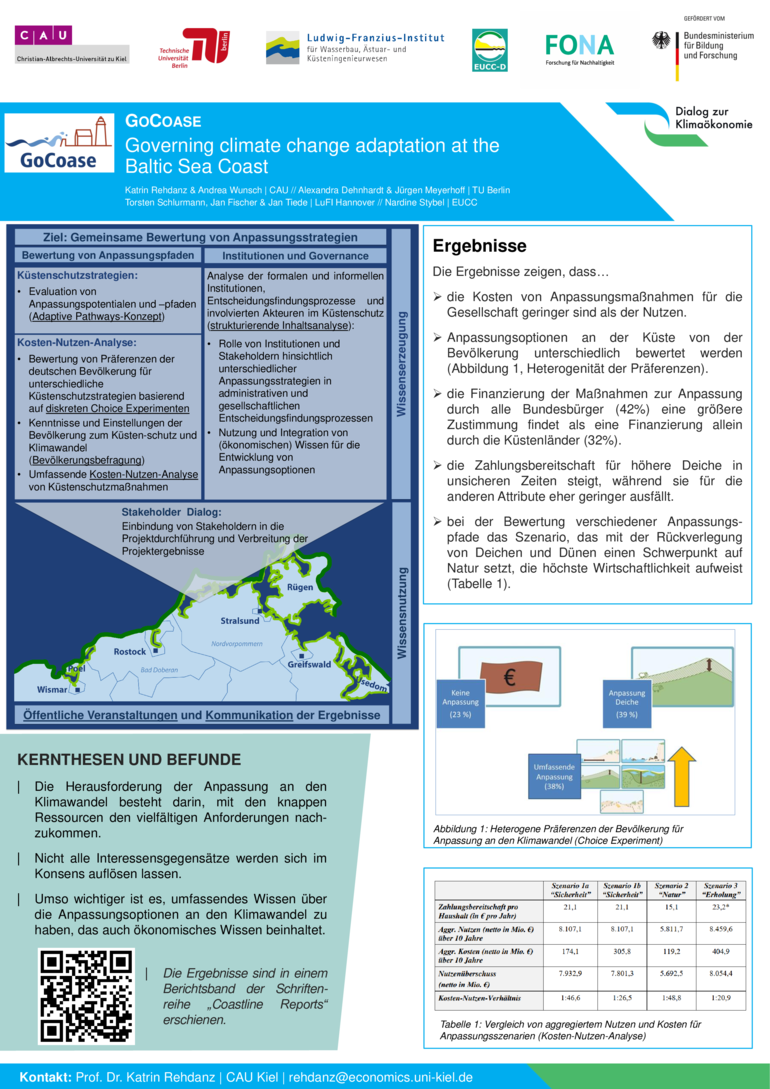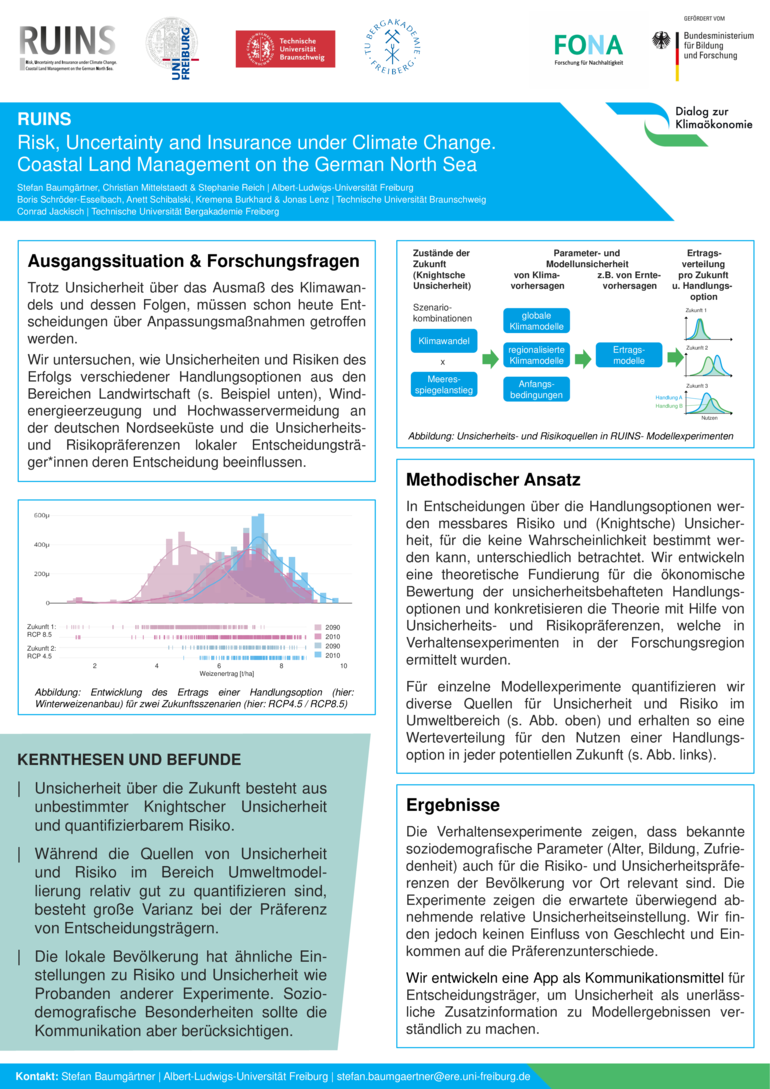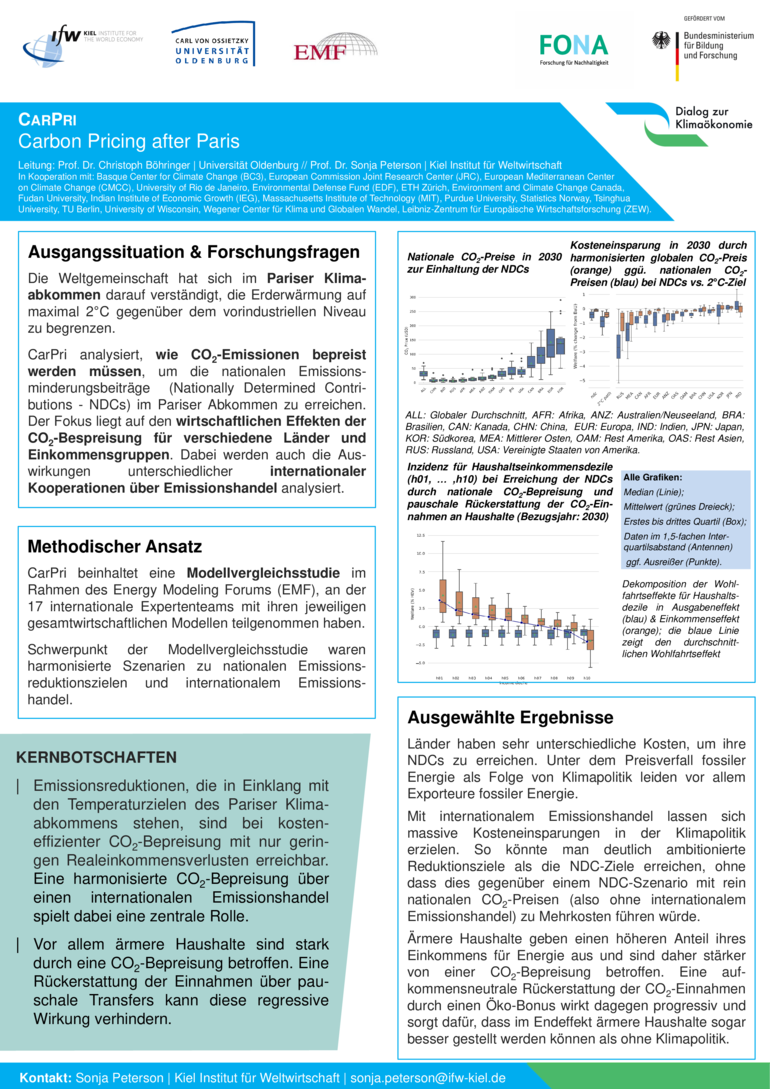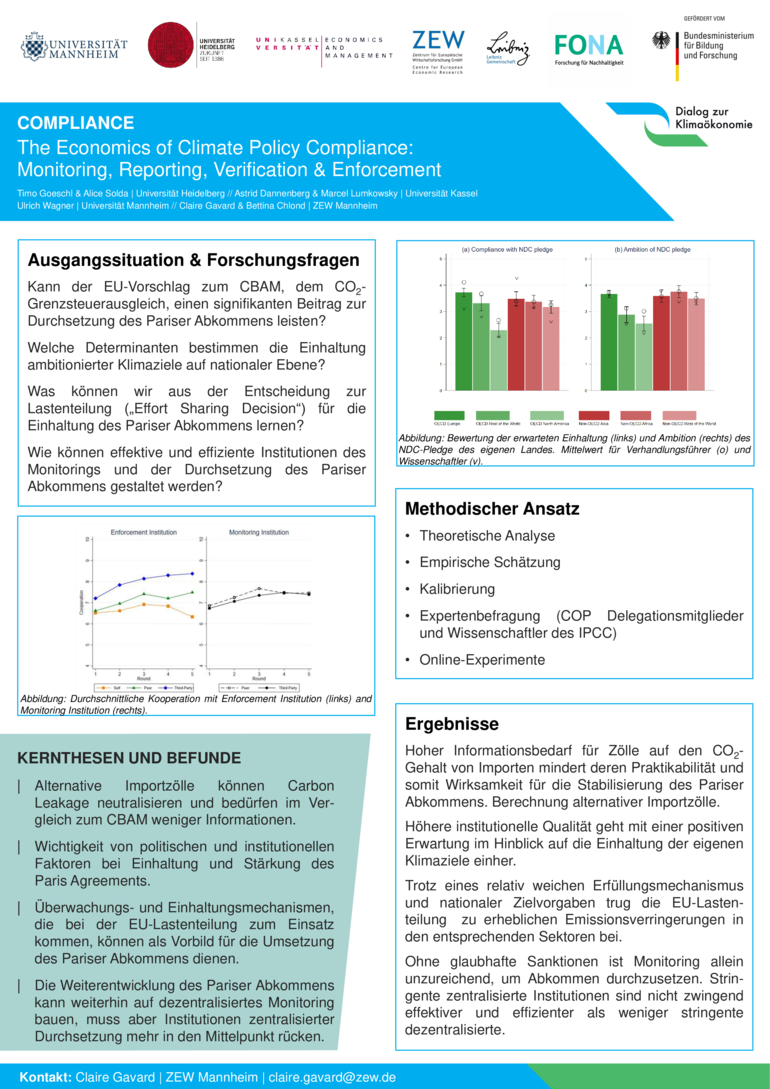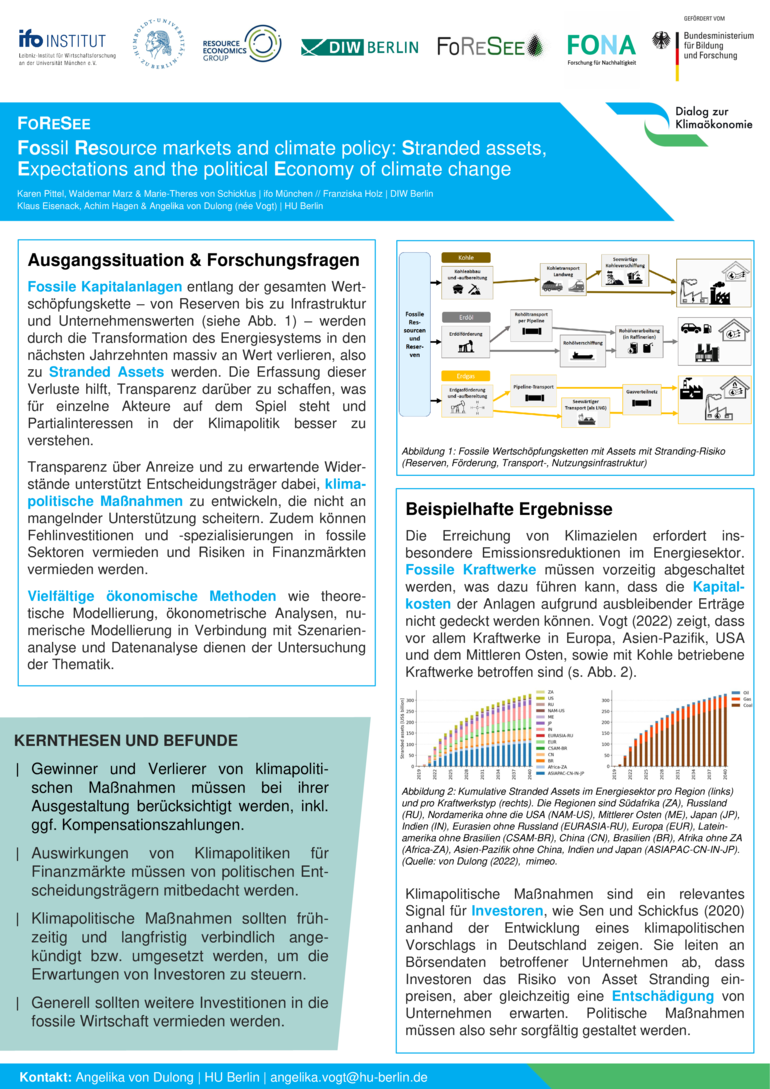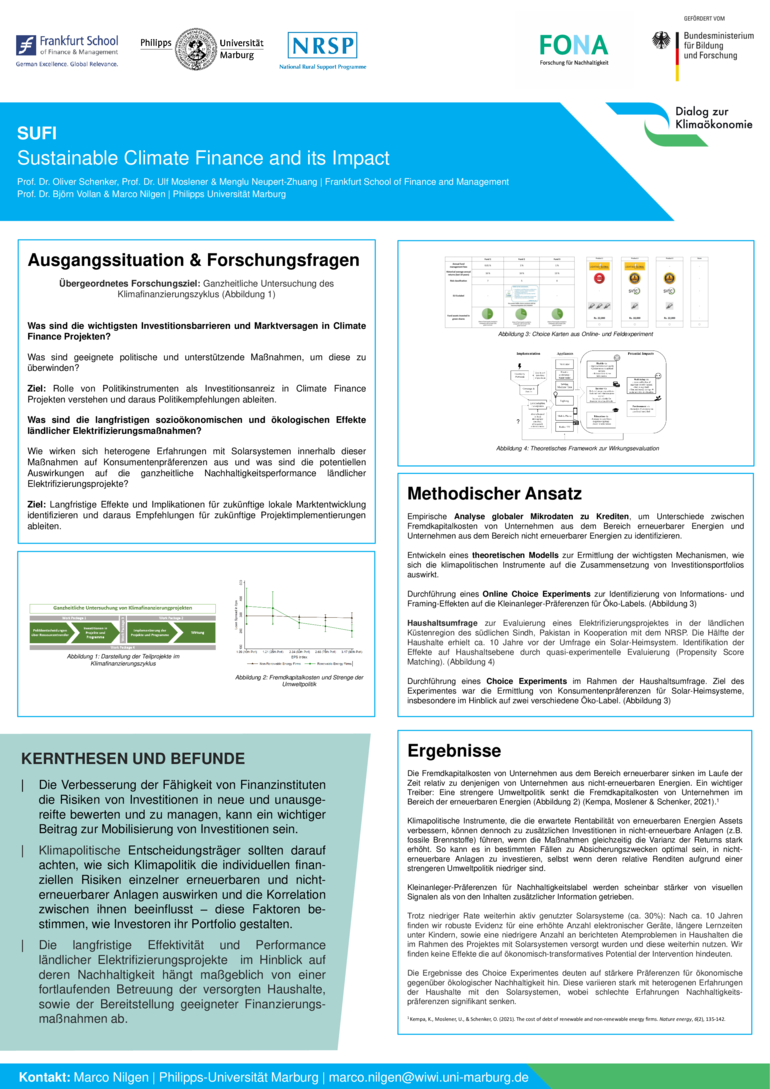Dialogue on the Economics of Climate Change
Projects of the Funding Measure "Economics of Climate Change II"
The wide-ranging projects of the funding priority are divided into four main themes and one cross-cutting theme:
- Theme 1: Climate protection & transformation: Decarbonisation – Competitiveness – Quality of life
- Theme 2: Climate protection: Instruments and policies after COP21
- Theme 3: Dealing with climate risks
- Theme 4: International climate policy
- Theme 5: Financial markets, financial sector and climate finance
Theme 1: Climate protection and transformation: Decarbonisation – Competitiveness – Quality of life
For a successful implementation of the ambitious climate targets of the Paris Agreement, a deep transformation of economy, society and politics is needed – in Germany and worldwide. According to the IPCC 1.5°C Report, decarbonisation of the global economy has to be achieved by the middle of the 21st century to accomplish the main goal of the Paris Agreement – limiting global warming to less than 2 °C.
Against this background, the question arises how to shape the necessary transformation while ensuring economic prosperity and competitiveness as well as social cohesion and quality of life. Therefore, possible national and international transformation pathways will be explored and discussed in this theme. In particular, sustainability and potential trade-offs and synergies between climate protection and other sustainable development goals will be discussed.
Research projects on theme 1
Theme 2: Climate protection: Instruments and policies after COP21
This theme focusses mainly on the question, which (climate) policy instruments do we need to achieve the ambitious climate target of the Paris Agreement? The instruments’ potential long-term economic effects, their performance and their interplay are investigated. The broad range of costs and benefits will be assessed against the backdrop of the economic, social and political context to develop efficient solutions.
The development of a (global) carbon market remains the central climate policy proposal. Hence, the performance of the existing emission trading systems will be evaluated. In addition, new mechanisms for carbon markets to, for example, avoid carbon leakage or coordinate carbon prices will be explored.
Research projects on theme 2
TapD2
to the project page
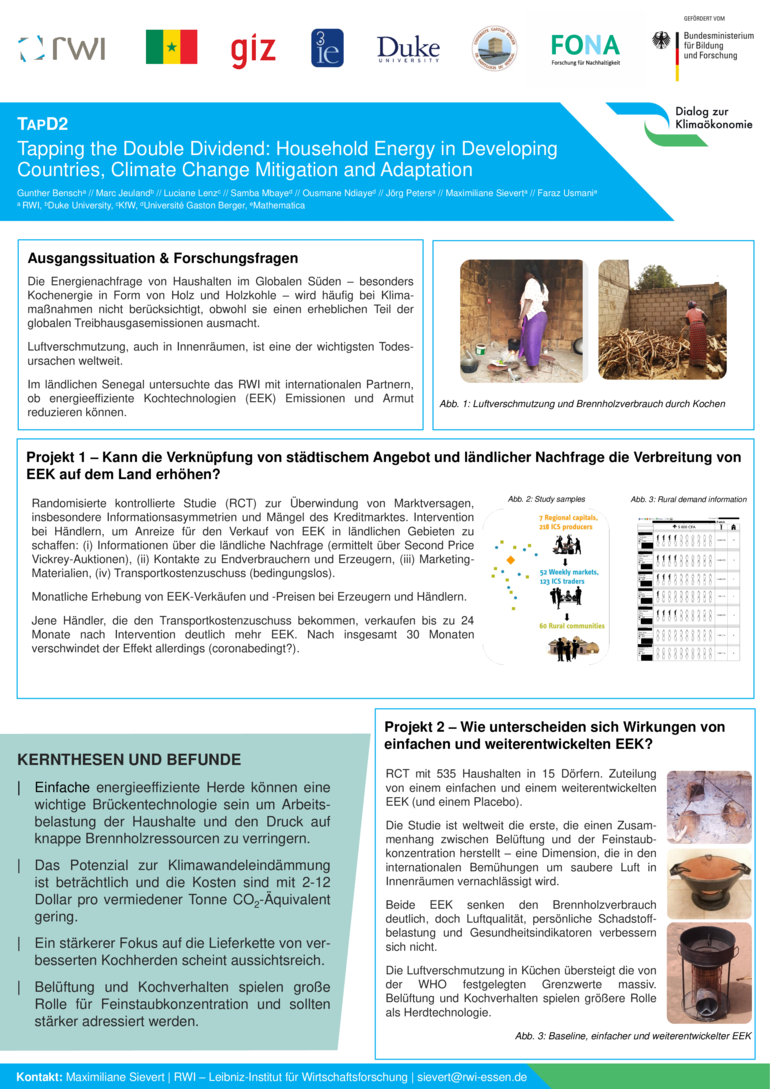
TRACE
to the project page
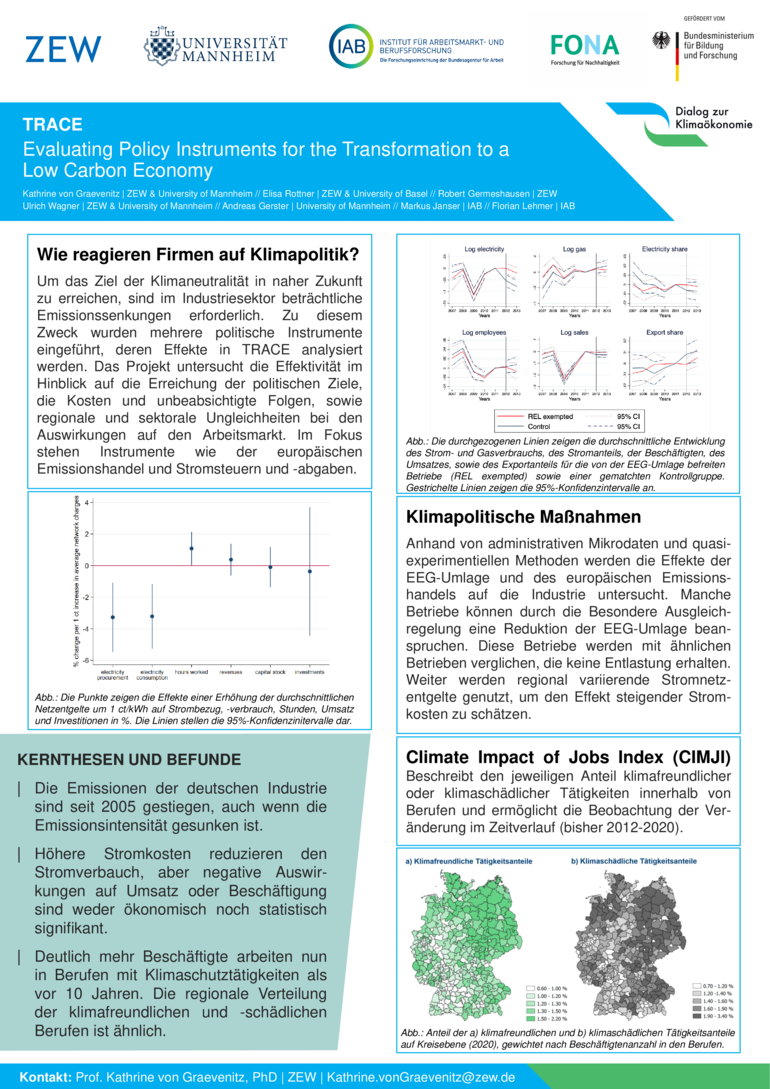
Theme 3: Dealing with climate risks
This theme focusses on economic and social consequences and costs of climate change and strategies to adapt to climate change impacts.
Consequences and costs of climate change
The overall aim is to improve the integrated assessment of the impacts and costs of climate change including the benefits of climate protection by avoiding damages and adaptation costs. The sound scientific assessment of climate change damages is important to illustrate the benefits of ambitious climate protection. This is especially relevant for international climate policy due to the lack of obligations and sanctioning mechanisms in the Paris Agreement.
Findings from natural science research will be integrated into broader socio-economic analyses. The generated insights will serve as a decision-making basis for stakeholders from society, businesses and governments.
Adaptation to climate change
Adaptation to climate change is not only about improving resilience and reducing vulnerability, but also about the capacity to avoid and cope with losses and damages. Therefore, the theme will focus on the actual reduction of vulnerability and on institutional measures for dealing with climate risks.
Research projects on theme 3
SLICE
to the project page
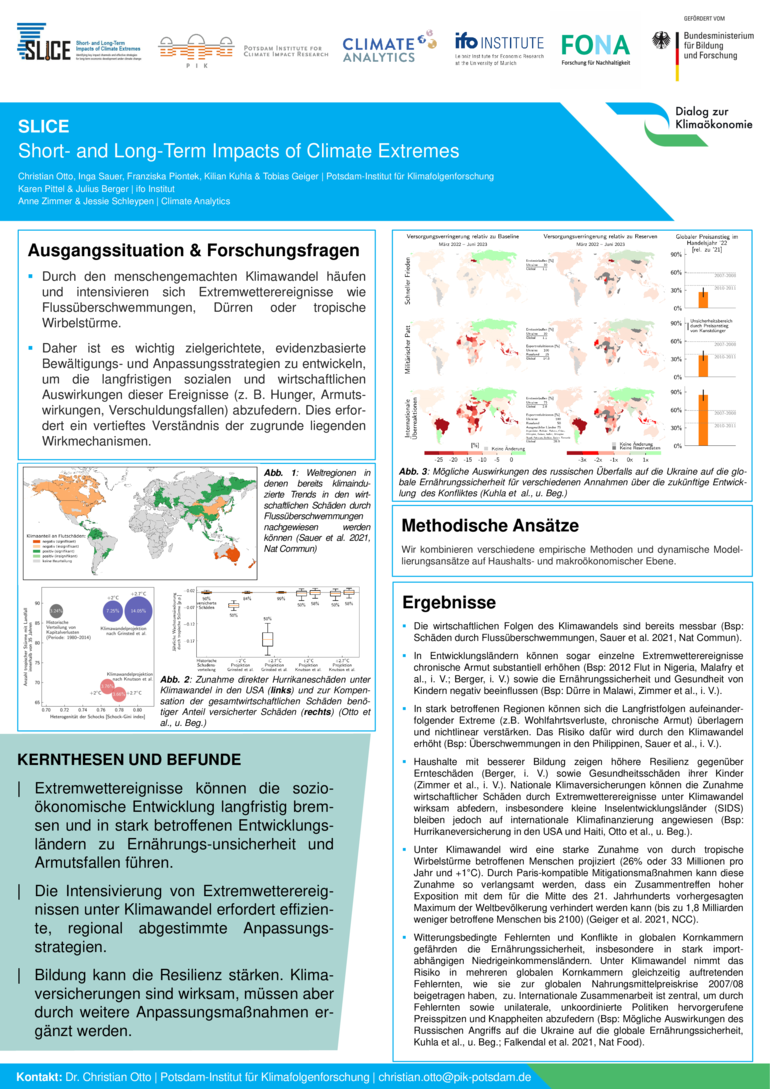
Theme 4: International climate policy
At the Paris Conference (COP 21) there was wide-spread political consensus to limit global warming to 1.5°C. However, the implementation and the necessary (national) actions were not specified. Thus, international climate policy is facing the challenge of negotiating a joint agenda.
The Nationally Determined Contributions (NDCs) are not yet sufficient to achieve the long-term goals of the agreement. Therefore, an intensified debate on the specific details of the NDCs in the ongoing UNFCCC process is expected. This includes the discussion on distributional issues and burden sharing between individual states as well as financial transfers between industrialized and developing countries.
The explosive nature of negotiations and conflict lines is intensified by the continued rise of global CO2 emissions. In addition, experiences from other areas of international politics indicate that individual states might attempt to circumvent the Paris Agreement. Therefore, the global challenge of internationally negotiating, implementing and monitoring climate policy will be analyzed to formulate solutions.
Research projects on theme 4
InFairCom
to the project page
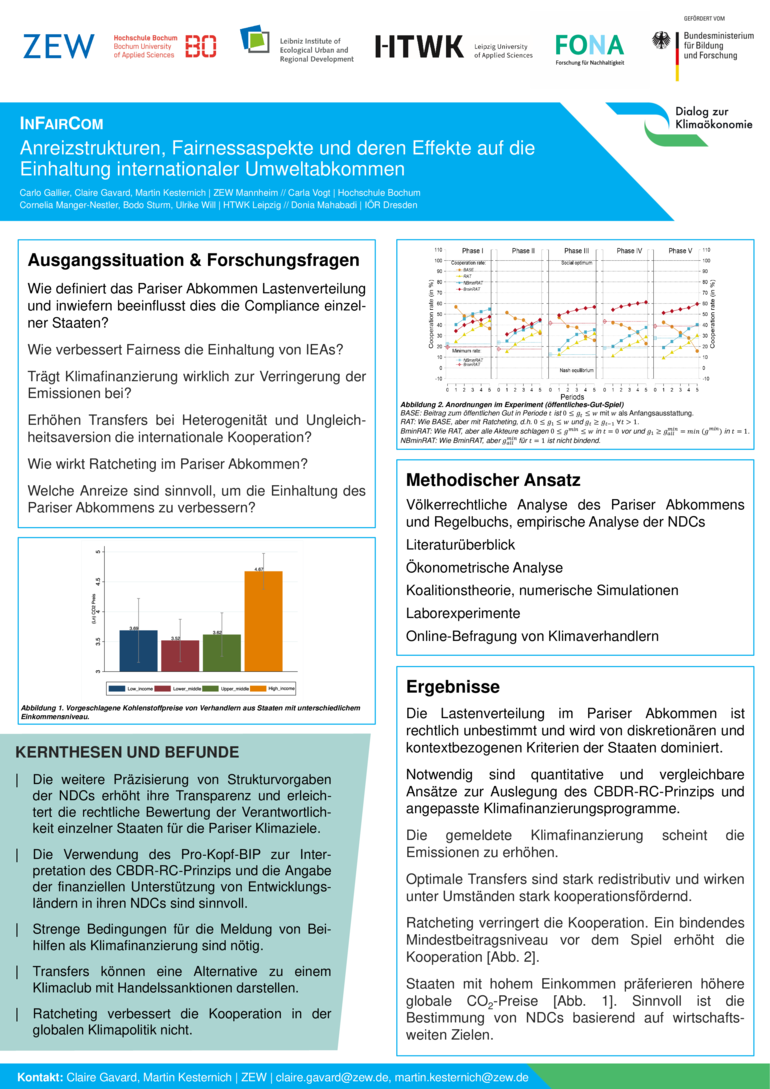
Theme 5: Financial markets, financial sector and climate finance
The financial sector plays a key role in achieving the climate goals of the Paris Agreement and is highly relevant to climate economic research. Therefore, the cross-cutting theme financial markets, financial sector and climate finance will interconnect all projects in the funding measure that deal with finance aspects.
The agreement at the COP21 in Paris has set the internationally binding target of making financial flows compatible with the attempt to decarbonise national economies. On the one hand, this means that financial flows must be controlled or redirected as such that only climate-friendly investments are financed. On the other hand, projects and measures that enable adaptation to climate change and promote a higher level of resilience to climate change impacts have to be developed and funded.
Efforts to implement these goals are evident not only at the international level, but also in the EU with the action plan for financing sustainable growth. The German federal government addresses the topic sustainable finance in the Climate Action Plan 2050 and in the Sustainable Finance Strategy adopted in February 2019.
However, it is clear that far-reaching changes in the financial system and business processes are necessary to achieve the Paris goal. According to the High-Level Expert Group on Sustainable Finance (HLEG), there is more than one possible transformation pathway rendering the change process highly challenging. In order to address these challenges, the cross-cutting theme coordinates and strengthens research on finance aspects.
Research projects on theme 5
Institutions
The 29 research projects of the funding measure Economics of Climate Change II consist of 86 subprojects and are carried out at 49 institutions throughout Germany.







